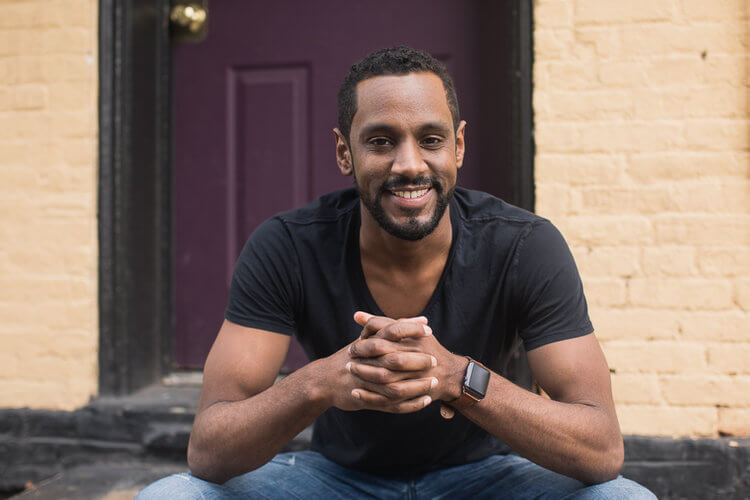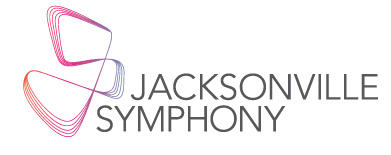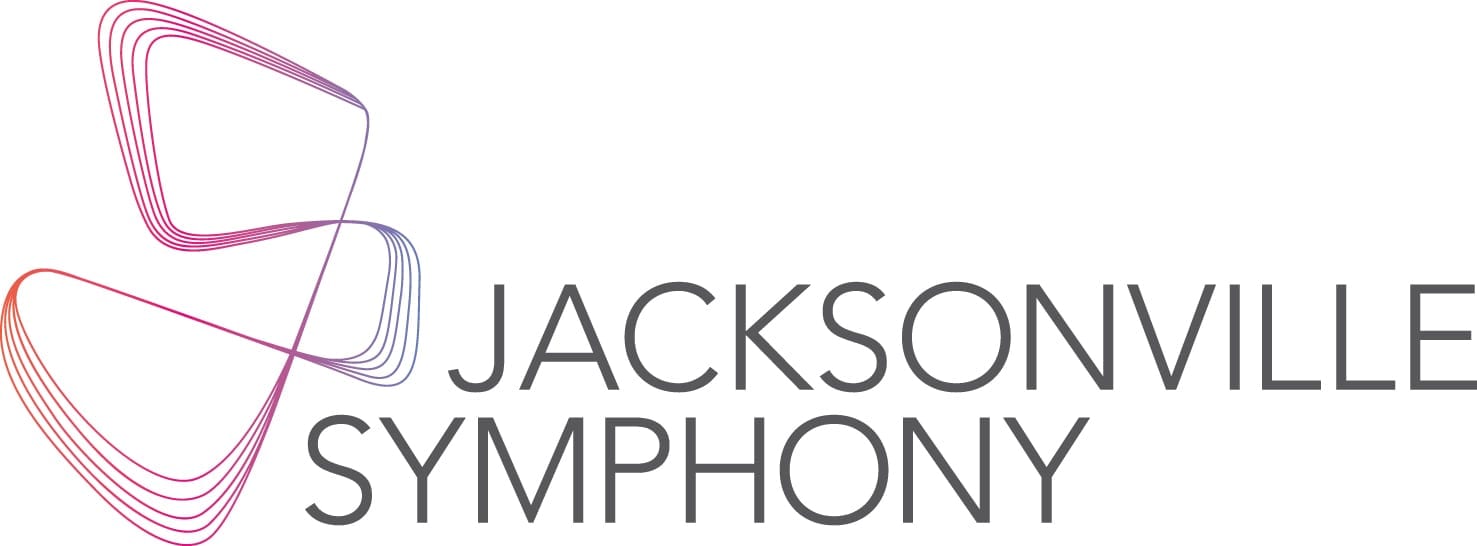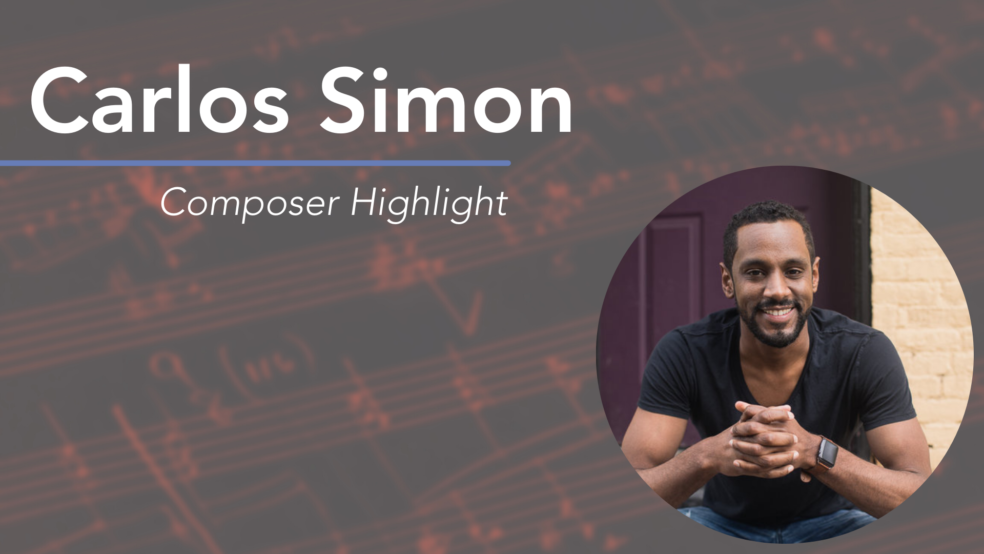Digital Marketing Manager Nicholas V. Hall shares what he believes to be an important part of orchestral repertoire: new music with living composers. By speaking directly to the artists of today, we learn what it means to be a living composer.
Composer Highlight: Carlos Simon
“Define your own success.”
“New Music” is not something often associated with symphonic orchestral performances. However, this week Jacoby Symphony Hall will have something new on the program. Friday, March 4, and Saturday, March 5, at 7:30 PM, the Jacksonville Symphony will be performing an all American program, including a piece by living composer Carlos Simon. Continue reading below to hear straight from the composer and learn more about the upcoming performance. As an audience member, you might be concerned about listening to something new. However, attending a program with the work of a living composer gives you the opportunity to be a part of history as the sounds of “The Block” by Carlos Simon will be heard within Jacoby Symphony Hall. Learn more about the full program and purchase tickets on the Appalachian Spring event page.
Q&A Introductions
Nicholas V. Hall: Hello Carlos! Allow me to introduce myself. My name is Nicholas and I am the Digital Marketing Manager with the Jacksonville Symphony. Outside of my role within the symphony I am also a percussionist and a composer. Being a performer/composer myself, I would like to thank you for your time in answering these questions. I believe it is important to connect our audience to living composers and hear straight from the voice of the artist.
The Musical Journey
NVH: To start, I’d like to ask the question all artists are asked many times throughout their career. Although it might seem trivial to talk about oneself, I find everyone’s individual story to be quite interesting.
NVH: How did you get into music? Did you have any other aspirations?
Carlos Simon: My father began pastoring a small congregation church in Atlanta in 1996. It was so small that there was no one to play piano on Sundays. At age 10, my parents enlisted me to play on Sundays and I began taking lessons. My teacher taught me how to learn songs “by ear,” which is learning the music simply by listening and identifying chords. It was an unorthodox way of teaching because most teachers start with reading and technique, but looking back, this type of training helped me to hear and listen to music completely different from other musicians. It wasn’t long after that I started writing and teaching songs to the congregation. My early influences to music are linked to my family’s involvement with the church.
I grew up listening and playing Gospel music. In fact, my parents only allowed my siblings to listen to Gospel music— anything else was forbidden. My uncles, who were church musicians, were my heroes! They lived in Virginia and had been performing in their father’s church at an early age. My family and I would take trips there during the holidays and I would try to soak up as much musical knowledge as I could— Asking questions, recording them playing (with my tape machine) and watching them play. I would take what they taught me and try to emulate it not only in my playing but also in my short compositions.
Gospel music, like Jazz, is an improvisatory genre. You learn to feel the music, hear what others are doing and respond to that musically. Improvisation has allowed me to think freely and confidently about my musical ideas. It is very easy to criticize one’s ideas and become paralyzed creatively by filtering too much. The idea of accepting whatever ideas come has really helped me to develop as an artist.
NVH: It seems like from a young age there was no question about your musical influences. Having come from a musical upbringing it’s clear how your journey into composition began to develop. And with any development, I’m sure there are many trial-and-error situations to find where you feel comfortable.
NVH: How would you describe your style, and are there any strong musical influences?
CS: Gospel and Jazz remain central influences in my style. I love telling stories through my music and often times that involves using musical genres that will help best tell that story.
Influences Beyond Music
NVH: With a strong musical influence rooted in Gospel and Jazz, I am curious about other forms of art. Outside of musical influences, I notice you write that “The Block” draws from visual influences. Personally, I find visual and aural art to be incredibly influential of each other, however, I know that may not be the same for everyone.
NVH: “The Block” draws influence from visual art. Do you find yourself drawn, and finding inspiration, from other artforms outside of music regularly? If so, what is an inspiration that you have yet to use but wish to for a future work?
CS: The artist who created the The Block, Romare Bearden, said once in an interview that “art should come from other art.” I agree! I’m inspired by writers, dancers and even other musicians.
NVH: I couldn’t agree more with that statement! I’m no artist, however, I always find myself inspired by the visual arts. Possibly the most obvious pairing of visual and aural art is within film scores. Being written specifically to be paired with visual elements, ultimately linking each element together.
NVH: Having written music both for film and the concert hall, when approaching a new project, what would you say is the largest difference between the two? The greatest similarity?
CS: It’s all story telling.
The Audience Experience
NVH: Moving away from the writing process of being a composer, I am always curious to hear a composer’s “elevator pitch,” so to speak.
NVH: If you had just a brief moment to capture someone’s curiosity about your music who has yet to hear it, what should they listen for within the upcoming performance of your piece “The Block?”
CS: The Block” is a short orchestral study based on the late visual art of Romare Bearden. Most of Bearden’s work reflects African-American culture in urban cities as well as the rural American south. Although Bearden was born in Charlotte, NC, he spent his most of his life in Harlem, New York. With its vibrant artistic community, this piece aims to highlight the rich energy and joyous scenery that Harlem expressed as it was the hotbed for African American culture.
“The Block” is comprised of six paintings that highlight different buildings (church, barbershop, nightclub, etc.) in Harlem on one block. Bearden’s paintings incorporate various mediums including watercolors, graphite, and metallic papers. In the same way, this musical piece explores various musical textures which highlight the vibrant scenery and energy that a block on Harlem or any urban city exhibits.
NVH: “The Block” sounds like an exciting piece, and having listened to a recording already, I look forward to seeing the orchestra perform it live. I also look forward to hearing future works of yours and will be keeping an eye out for upcoming performances.
NVH: Are there any projects you are especially excited about? What can we expect to see from you in the near future?
CS: I’m excited about my new opera, it all falls down which will premiere March 5-25, 2022 at the John F. Kennedy Center for the Performing Arts by the Washington National Opera.
Advice to Composers
NVH: The Jacksonville Symphony is proud to be performing your piece this coming weekend. I would like to thank you again for you time to answer our questions as we approach the performance of “The Block” this March. As a composer myself, I would like to end this Q&A with one question to any young composers that may be reading.
NVH: If you had one piece of advice you could give your younger self, or young composers today, what would that be?
CS: Define your own success.
Carlos Simon
 Simon’s latest album, MY ANCESTOR’S GIFT, was released on the Navona Records label in April 2018. Described as an “overall driving force” (Review Graveyard) and featured on Apple Music’s “Albums to Watch”, MY ANCESTOR’S GIFT incorporates spoken word and historic recordings to craft a multifaceted program of musical works that are inspired as much by the past as they are the present.
Simon’s latest album, MY ANCESTOR’S GIFT, was released on the Navona Records label in April 2018. Described as an “overall driving force” (Review Graveyard) and featured on Apple Music’s “Albums to Watch”, MY ANCESTOR’S GIFT incorporates spoken word and historic recordings to craft a multifaceted program of musical works that are inspired as much by the past as they are the present.
As a part of the Sundance Institute, Simon was named as a Sundance Composer Fellow in 2018, which was held at the historic Skywalker Ranch. His string quartet, Elegy, honoring the lives of Trayvon Martin, Michael Brown and Eric Garner was recently performed at the Kennedy Center for the Mason Bates JFK Jukebox Series. With support from the US Embassy in Tokyo and US/Japan Foundation, Simon traveled with the Asia/America New Music Institute (AANMI) on a two-week tour of Japan in 2018 performing concerts in some of the most sacred temples and concert spaces in Japan including Suntory Hall in Tokyo, Japan.
Simon earned his doctorate degree at the University of Michigan, where he studied with Michael Daugherty and Evan Chambers. He has also received degrees from Georgia State University and Morehouse College. Additionally, he studied in Baden, Austria at the Hollywood Music Workshop with Conrad Pope and at New York University’s Film Scoring Summer Workshop.
Learn More & Watch Live
To learn more about this program, be sure to read the full program notes or visit the event page. Tickets are still available and can be purchased online or at the box office. Interested in learning more about Carlos Simon? Visit his webpage for a full list of works and upcoming events.
By Nicholas V. Hall, Digital Marketing Manager


